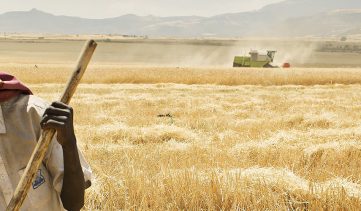
Photo: Richard Nyberg, USAID
A number of countries have succeeded in reducing hunger and undernutrition rapidly over the past decade. To help others accelerate the pace toward the goal, Compact2025 facilitates knowledge transfer to focal countries from the experiences of these “learning countries.”
According to IFPRI Director General Shenggen Fan, learning countries can provide not only knowledge and best practices to promote mutual learning, but also hands-on cooperation, investment, and technology transfer.
“We are making progress, but want to accelerate this progress.” Fan said. “That’s the essence of Compact2025.”
Learning countries include Brazil, China, Thailand, and Vietnam. Each offers tested approaches—involving a range of sectors and actors—that may inform other countries’ priorities and investments along their paths to ending hunger and undernutrition by 2025.
China and Vietnam, for example, used a smallholder agriculture-led approach in the late-70s and 80s. Land tenure and market reforms made it easier for small farmers to produce and purchase more nutritious foods, lowered food prices for poor consumers, and raised demand for rural labor, leading to dramatic poverty reduction.
Brazil’s success, in the mid-1990s through the early 2000s, stems in part from its wide-reaching social protection program, Bolsa Familia, which includes both direct cash transfers to needy families and conditional cash assistance in exchange for ensuring children attend school and receive vaccinations. Brazil has also implemented nutrition-specific interventions such as educating mothers about breastfeeding and child nutrition, and increasing micronutrient fortification and supplements.
Thailand has grown from a low income to an upper-middle income country while dramatically reducing hunger and undernutrition in less than a generation through a multi-sectoral approach. The country combined agriculture-led and social-protection-led approaches while prioritizing an integrated and community-based approach to improving nutrition and health outcomes. Thailand invested in a wide range of sectors including social services, education, water, sanitation, hygiene, and health care.
“Success depends not just on nutrition-specific interventions, but on other sectors like agriculture and sanitation,” Fan said. “Compact2025 will bring all this together.”


